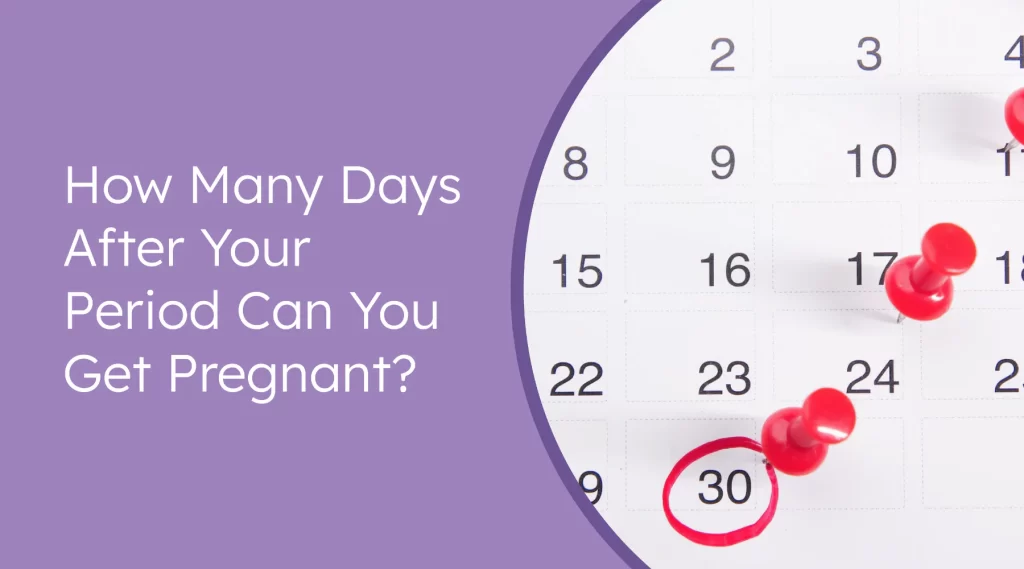Knowing when you are most fertile can be key to either conceiving or avoiding pregnancy. This comprehensive guide will break down the factors influencing fertility, explain how to calculate your fertile window, and address common questions.

Understanding the Menstrual Cycle and Fertility
Your menstrual cycle is a natural process that prepares your body for pregnancy. Most cycles last between 28 and 32 days, but some people experience shorter or longer cycles.
- Day 1: The first day of your period marks the beginning of your menstrual cycle.
- Days 8-19: For people with cycles lasting 26-32 days, these days are typically the most fertile. This window includes ovulation and the days leading up to it.
- Ovulation: Ovulation is when an egg is released from the ovary. This is the most fertile time of the cycle.
Phases of the Menstrual Cycle
- Follicular Phase (Pre-Ovulation)
This phase begins on the first day of menstruation and ends with ovulation. It is marked by hormonal changes that prepare the ovary to release an egg. - Ovulation (Day 10-14 for a 28-Day Cycle)
Ovulation typically occurs around the midpoint of the cycle. The egg remains viable for about 24 hours, while sperm can survive in the body for up to 5 days. - Luteal Phase (Post-Ovulation)
This phase lasts about 14 days after ovulation and ends with the next period. Pregnancy is less likely to occur during this time.
How to Calculate Your Fertile Window
Calculating your fertile window helps identify the days when conception is most likely:
- Track the first day of your last menstrual period (LMP). This is Day 1 of your cycle.
- Count 14 days backward from your next expected period. This is the estimated ovulation day.
- Include the five days before and one day after ovulation for your fertile window.
For example:
- 28-Day Cycle: Ovulation likely occurs on Day 14, with the fertile window spanning Days 9-15.
- 30-Day Cycle: Ovulation occurs around Day 16, with a fertile window from Days 11-17.
Signs of Ovulation
Recognizing ovulation signs can help identify your most fertile days:
- Cervical Mucus Changes: Discharge becomes wetter, clearer, and slippery like raw egg whites.
- Basal Body Temperature (BBT): A slight increase in BBT occurs after ovulation.
- Ovulation Pain: Some people experience mild cramping or discomfort on one side of the lower abdomen.
- Increased Libido: Hormonal changes may enhance your sex drive.
Using an ovulation predictor kit (OPK) or a fertility monitor can further pinpoint your ovulation days.
How Pregnancy Occurs
Pregnancy happens when sperm fertilizes an egg during its journey from the fallopian tube to the uterus. Factors that influence this process include:
- Timing: Fertilization is most likely during ovulation.
- Sperm Longevity: Sperm can live up to five days in the female reproductive tract.
Maximizing Your Chances of Conception
To enhance your chances of getting pregnant:
- Time Intercourse Around Ovulation: Engage in sexual activity during the 2-3 days leading up to ovulation.
- Adopt Healthy Habits:
- Avoid smoking and limit alcohol intake.
- Maintain a moderate weight.
- Manage stress and pre-existing medical conditions.
Fertility and Age
Fertility declines naturally with age. For women:
- Fertility begins to drop in the early 30s.
- By age 40, the chance of conception per cycle is about 10%.
For men, age can impact sperm count and motility.
Avoiding Pregnancy Using the Fertility Awareness Method (FAM)
If avoiding pregnancy, tracking your fertile window can help. However, the failure rate of FAM is up to 23% with typical use, as cycles can vary. Using a backup contraception method is advised.
Factors Affecting Fertility
- Medical Conditions: Conditions like PCOS, endometriosis, or hormonal imbalances can interfere with ovulation.
- Male Fertility Issues: Problems such as low sperm count, poor sperm motility, or abnormal sperm shape can reduce conception chances.
Frequently Asked Questions (FAQs)
1. Can I get pregnant during my period?
Yes, though it’s less likely. Sperm can survive in the body for up to 5 days, so early ovulation could result in pregnancy.
2. When am I least likely to get pregnant?
The least fertile time is during your period and the days immediately following it.
3. Can I get pregnant two days before my period?
It is unlikely but possible if ovulation occurs late or irregularly.
4. What is the success rate of timed intercourse?
Timed intercourse during the fertile window has a 20%-30% chance of pregnancy per cycle.
5. What if I have irregular cycles?
Charting ovulation signs or using an OPK can help identify your fertile days more accurately.




